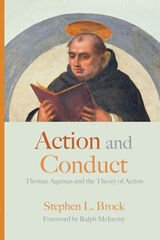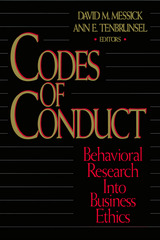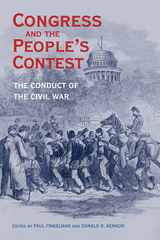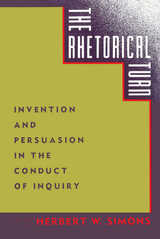
"A first-rate book...Brock's lucid and illuminating analysis offers much of value to both intellectual historians and theologians, as well as philosophers."—Theological Studies"Brock's treatment of Aquinas's account of action exhibits a rare combination of rigor and learning. It is, no doubt, the best we have."—The Thomist

Banta also deals extensively with London's Punch, a sharp critic of American nationalism, and draws from images and writings in magazines as diverse as Puck,The Crisis,Harper's Weekly, and The International Socialist Review. Orchestrating a wealth of material, including reproductions of rarely seen political cartoons, she offers a richly layered account of the cultural struggles of the age, from contests over immigration and the role of the New Negro in American society, to debates over Wall Street greed, women's suffrage, and the moral consequences of Western expansionism.


In Codes of Conduct, Karla Holloway meditates on the dynamics of race and ethnicity as they are negotiated in the realms of power. Her uniquely insightful and intelligent analysis guides us in a fresh way through Anita Hill’s interrogation, the assault on Tawana Brawley, the mass murders of Atlanta’s children, the schisms between the personal and public domains of her life as a black professor, and––in a moving epilogue––the story of her son’s difficulties growing up as a young black male in contemporary society. Its three main sections: “The Body Politic,” “Language, Thought, and Culture,” and “The Moral Lives of Children,” relate these issues to the visual power of the black and female body, the aesthetic resonance and racialized drama of language, and our children’s precarious habits of surviving. Throughout, Holloway questions the consequences in African-American community life of citizenship that is meted out sparingly when one’s ethnicity is colored.
This is a book of a culture’s stories––from literature, public life, contemporary and historical events, aesthetic expression, and popular culture––all located within the common ground of African-American ethnicity. Holloway writes with a passion, urgency, and wit that carry the reader swiftly through each chapter. The book should take its place among those other important contemporary works that speak to the future relationships between whites and blacks in this country.


The Rhetorical Turn moves from biology to politics via excursions into the rhetorics of psychoanalysis, decision science, and conversational analysis. Topics explored include how rhetorical invention guides scientific invention, how rhetoric assists political judgment, and how it integrates varying approaches to meta-theory. Concluding with four philosophical essays, this volume of case studies demonstrates how the inventive and persuasive dimensions of scholarly discourse point the way to forms of argument appropriate to our postmodern age.

Although the linking of "ethics" and "politics" may seem more like the ingredients for a comedian's monologue, it is a sober issue and one that affects every American—especially when it comes to state politics, where the cynical might say ethics can never survive. To find examples of the latest corruption du jour, all one has to do is turn to the newspaper, or switch on the local newscast (think Illinois and New Jersey).
Scandals have been ubiquitous since the beginning of the Republic, but it wasn't until 1954 that ethical self-regulation began to move legislatively beyond bribery statutes to address deeper issues—those which, in New York Governor Thomas Dewey's words, skulked in the "shadowlands of conduct." Rosenson begins her exploration with that moment when New York became the first state to enact a general ethics law, setting standards and guidelines for behavior. Unforgiving and illuminating, she examines the many laws that have been enacted since and the reasons that many of these law came into being.
It is crucial to the functioning of a democratic government to understand how and why ethics laws vary across legislatures, and it is surprising to discover that many states have become far more stringent than the U.S. Congress in laws and regulations. Using both qualitative historical sources and rigorous statistical analysis, Rosenson examines when and why, from 1954 to the present, legislators have enacted ethics laws that seem to threaten their own well-being. Among the economic, political, and institutional factors considered that have helped or hindered the passage of these laws, the most consistent was pure scandal, abetted by the media. To have good government, one must be able to trust it, and this book can help all citizens understand and find their way out of the shadowlands into the light.
READERS
Browse our collection.
PUBLISHERS
See BiblioVault's publisher services.
STUDENT SERVICES
Files for college accessibility offices.
UChicago Accessibility Resources
home | accessibility | search | about | contact us
BiblioVault ® 2001 - 2024
The University of Chicago Press









